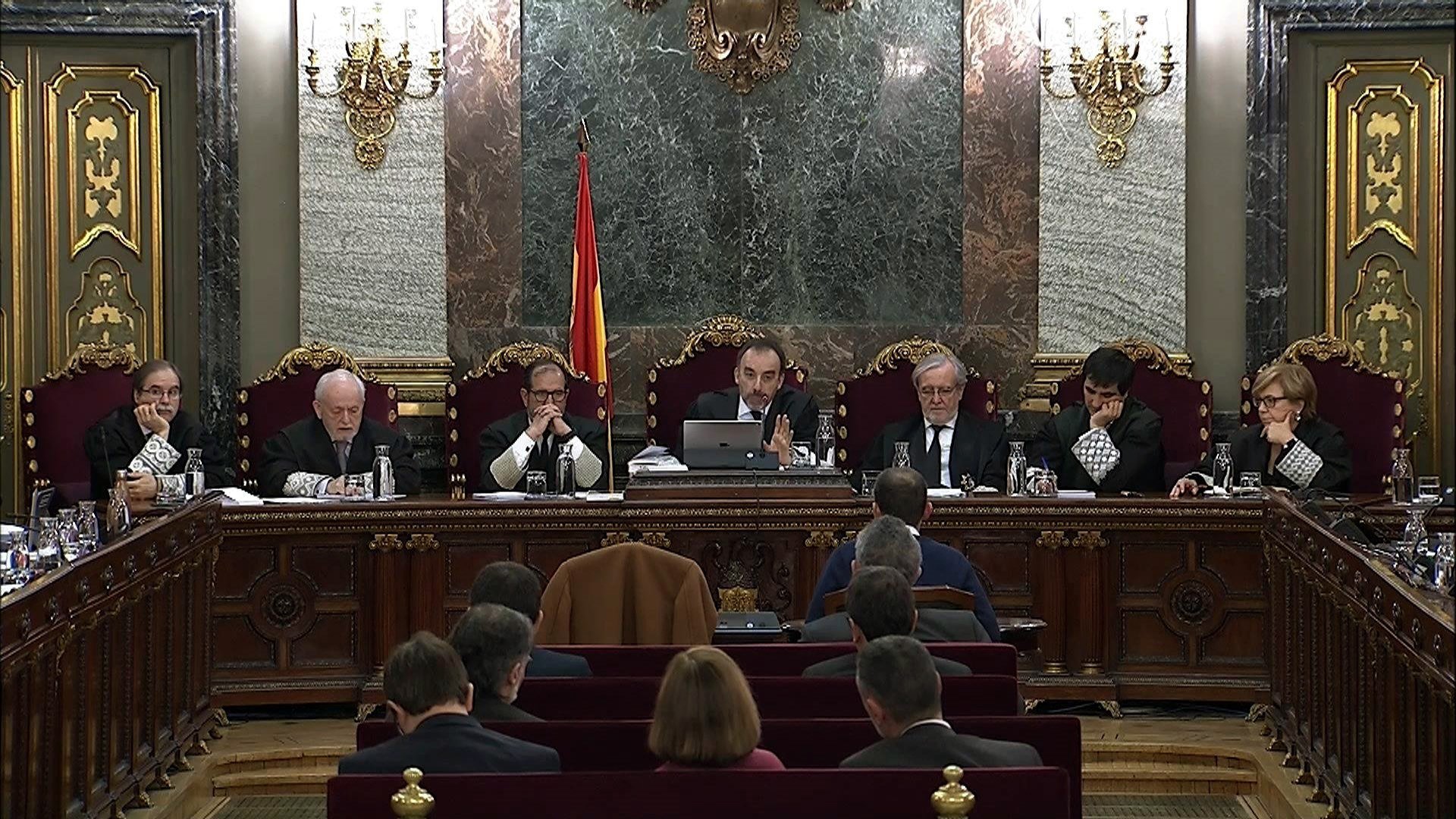International observers from the specially formed body International Trial Watch have denounced what they see as a lack of impartiality from presiding judge Manuel Marchena in the fifth week of the Catalan independence trial.
The observers' report says that the judge is limiting the possibility for lawyers, especially defence counsel, to question or re-question witnesses about matters not entered into with the witness by the party who proposed them. This limit, they say, "isn't defined in the law".
They say that this week a public prosecutor tried to ask just such a question. When defence protested the question, Marchena himself posed it to the witness, in this case former Catalan police chief Josep Lluís Trapero.
Equal treatment of witnesses
They also criticise Marchena for having criticised certain witnesses for their lack of memory, warning they could be investigated for providing false testimony, when he didn't do so with others. The report notes he gave such a warning to Jaume Mestre, a former Catalan government official, when he stated on various occasions he couldn't remember the answers to certain questions. He did not give such a warning to, for example, former prime minister Mariano Rajoy or his deputy Soraya Sáenz de Santamaría.
The experts write that "if the presiding judge warns a witness, given their lack of reply due to a memory gap, that can represent a refusal to respond, this reprobation can condition what the witness goes on to say".
The report was drafted by last weeks' observers: Ralph J Bunche III, general secretary of the Unrepresented Nations and Peoples Organization, from Belgium; Hannibal Uwaifo, president of the African Bar Association, from Malawi; and Ricardo Juan Sánchez, professor in Procedural Law at the University of Valencia.

